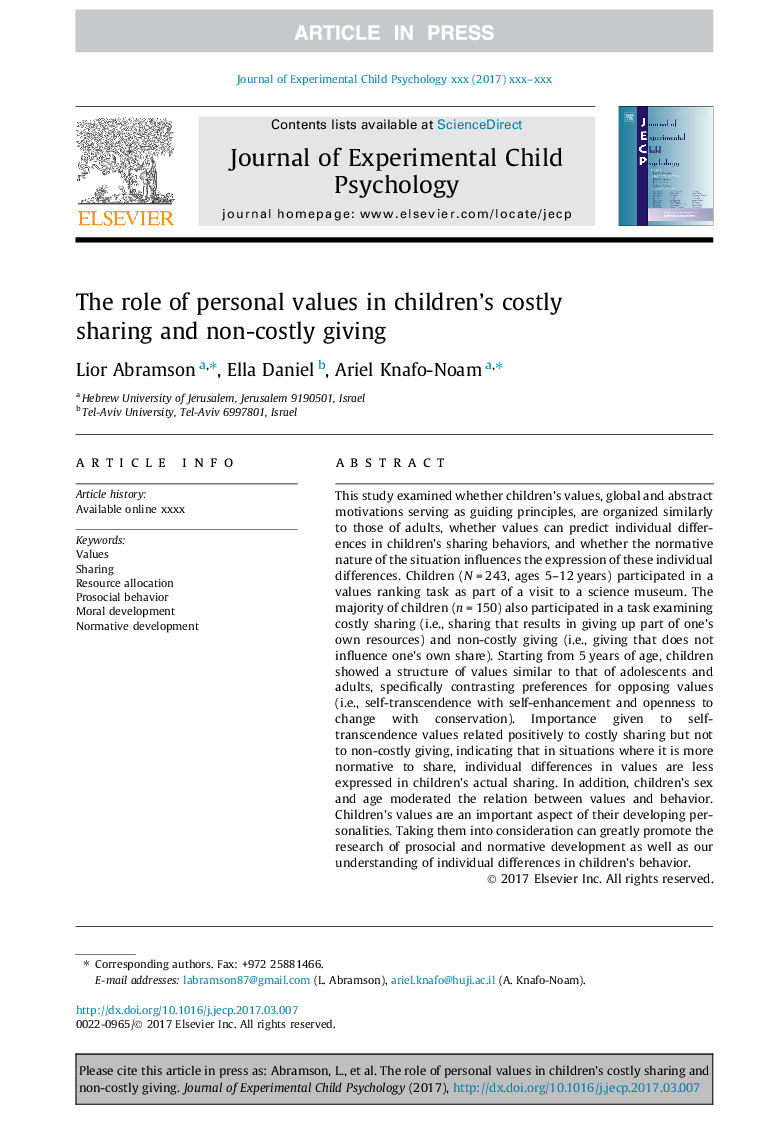| Article ID | Journal | Published Year | Pages | File Type |
|---|---|---|---|---|
| 7274345 | Journal of Experimental Child Psychology | 2018 | 18 Pages |
Abstract
This study examined whether children's values, global and abstract motivations serving as guiding principles, are organized similarly to those of adults, whether values can predict individual differences in children's sharing behaviors, and whether the normative nature of the situation influences the expression of these individual differences. Children (N = 243, ages 5-12 years) participated in a values ranking task as part of a visit to a science museum. The majority of children (n = 150) also participated in a task examining costly sharing (i.e., sharing that results in giving up part of one's own resources) and non-costly giving (i.e., giving that does not influence one's own share). Starting from 5 years of age, children showed a structure of values similar to that of adolescents and adults, specifically contrasting preferences for opposing values (i.e., self-transcendence with self-enhancement and openness to change with conservation). Importance given to self-transcendence values related positively to costly sharing but not to non-costly giving, indicating that in situations where it is more normative to share, individual differences in values are less expressed in children's actual sharing. In addition, children's sex and age moderated the relation between values and behavior. Children's values are an important aspect of their developing personalities. Taking them into consideration can greatly promote the research of prosocial and normative development as well as our understanding of individual differences in children's behavior.
Related Topics
Social Sciences and Humanities
Psychology
Developmental and Educational Psychology
Authors
Lior Abramson, Ella Daniel, Ariel Knafo-Noam,
